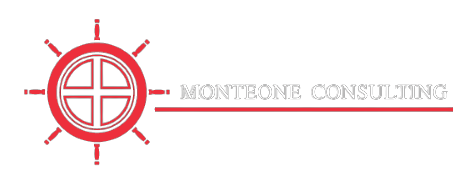MONTEONE CONSULTING INTERNATIONAL MEDIATION AND INTERNATIONAL ARBITRATION
A Word From Myself.
The globalization of commerce has facilitated new ways of doing business and developing commercial relationships that are not connected geographically to a specific country.
International commerce has created a link between people from very different backgrounds, which can be both very productive and an impediment, especially since a misunderstanding can cause a negotiation to fail or a business relationship to end, as well as the rules and regulations in any country, can create an opening and an obstacle in the same time, if not managed correctly.
Often, when an opportunity presents itself, the difficulty of grasping it and make it become a profitable business in accordance with both parties’ social and legal standards leads to a search for a more efficient way to reconcile the differences.
The secret to any successful business is communication. While this might seem like a simple task, there are always outside influences, and different uses of communication, that will impair a proper communication, on levels that can arise from legal, accounting, and other areas affecting business endeavors.
Occasionally, a need for the help of a third person arises, a professional who is an expert in the process. Under many legal systems lies a tool that is essential, fast and efficient towards the public administration, financial structures involved in the process – and the business owners.
The best tool is International Business Mediation.
Jelena Cudic, The owner of Monteone Consulting

International Mediator
MonteOne Consulting Group
What is the difference between
a Mediator and an Arbitrator?
Arbitrator listens to facts and evidence and renders an award. Mediator helps the parties define and understand the issues and each side’s interests. Parties vent feelings, tell story, engage in creative problem–solving. In both cases, the parties present case, and in some countries, they testify under oath.
MEDIATOR IN BUSINESS
Mediation marketing is a natural extension of whom we are asking our clients to be, when we ask them to move from avoidance to active problem solving – in this way, a mediator successfully resolves business and legal disputes by providing efficient, cost-effective and impartial ways of overcoming barriers at any stage of the project, because the marketing mediation doesn’t have to be expensive to be effective.
Mediation in any business signifies a process in which a mediator facilitates communication and negotiation between parties to assist them in reaching a voluntary agreement.
Why You Should Consider Business Mediation
Business disputes resolution – be it, paying taxes and integrating new technologies, business disputes are an inescapable part of running a business. It could be about a contract, a verbal agreement, or maybe a dispute with your labor force. You may even need to break ties with a long time business partner. The purpose of this semi-formal process is to ensure all parties’ concerns are heard, allowing saving time and money, being less adversarial, confidential, and structured in a way to maintain relationships preventing reoccurrence.
The result of mediation is a written, signed agreement, which all parties agree is the most mutually beneficial solution.
MEDIATION AND LEADERSHIP
We often envision leaders managing people’s differences.
The key of doing this in a way that diminishes their destructive potential and helps them reconstruct their energy is through the harmony instead of a clatter of views.
A type of leader that allows the two or more blocs to learn from one another, in order to do this, creates a “holding environment” where people can discuss values, perspectives, and ideas without feeling threatened. This requires trust – a critical factor in holding people’s attention to difficult problems.
And this requires the knowledge of principles of Business Building – a.k.a. the applied MBA. This applies equally to mediation.
A mediator builds trust and creates safe environment for the parties to share what happened, what is important to them, what their concerns and fears are for their businesses. A mediator then helps the parties engage in the perspective of each other and engages in problem-solving, but having already resolved the issues in neutral environment for the business purposes. In this case, the mutual decision and all the other material implications resulting from the starting non- equivalence, need the knowledge to be applied in real situations.
““Giving the work back to people”. Leaders are often expected to have and provide solutions to existing problems. If that happens in the context of adaptive challenges, those solutions will be ill-suited or unsustainable; that is because, by definition, adaptive challenges are those where solutions are not known (sometimes even the problem itself may not be known/defined); they need to be developed by those who own the problem – the people. Therefore, leaders should be asking questions rather than giving answers…”
( Wolters Kluwer Arbitration )
The above are only some concepts shared by mediation and leadership. The purpose of this comparison is to understand that the “Mediation Path” is a way of learning the leadership. The name does not change the essence of what mediators do in their business day – it defines the knowledge skillset and the understanding of the purpose in everyday communication with their profession. Benefit from that.
1. Leaders can benefit from the micro-skills used by mediators)
2. It is essential, especially in today’s business management, to keep teaching and practicing the skills used in mediation not only for conflict resolution, but as skills and tools for better leadership as well.
Helm
helm (n.1)
“instrument by which a ship is steered,” from Old English helma “rudder; position of guidance, control,” from Proto-Germanic *helmaz (source also of Old Norse hjalm, Old High German helmo, German Helm “handle”).
helm (n.2)
“a helmet, a defensive cover for the head,” from Old English helm “protection, covering; crown, helmet,” from Proto-Germanic *helmaz “protective covering” (Cognates: Old Frisian, Old Saxon, Old High German helm, German Helm, Old Norse hjalmr, Gothic hilms)
What does steering mean in business?
In business, the steering is in the tracking, review and corrections of people, tasks, metrics and expected results. And it’s often less obvious, and less dramatic, than the big picture. It often takes the discipline of details and consistency over time.
When you first enter into a commercial contract, you may not foresee a business dispute on the horizon whatsoever. But one thing’s for sure when scaling a business, and that’s nothing is certain. Futureproofing your contracts with an arbitration clause or agreement will stand you in good stead if a dispute arises and will also help you choose the right form of dispute resolution to suit your requirements and to get you the best possible outcome for your business.
Unlike forms of alternative dispute resolution (ADR) such as commercial mediation, early neutral evaluation or expert determination, you should be aware that the outcome of arbitration is binding on the parties. Decisions are final, with a limited possibility of appeal. Arbitration decisions are also widely enforceable both nationally and internationally.
The arbitration procedure is particularly attractive to businesses involved in complex commercial disputes. This is because the process is overseen by an arbitrator, who usually possesses a degree of expertise in the subject matter at hand that a judge may lack. This helps to reduce the time and expense involved in instructing independent experts to clarify technical matters to a court presided over by a judge. Arbitration proceedings are normally held in private, so you can rest assured that the possibility of sensitive information becoming public is minimised.

Company diagnostics
Our control of applied norms, contracts and your existing processes (AS-IS) Adjustment of norms and regulations on the market and the application of processes that reach maximum potential without the risk of breach on the market (TO-BE)

International Investments
The protection of your investment and business abroad, insurance of your business process, and how to choose and decide, necessary documentation for business abroad, business normative and customs

Multilateral Contracts
Communication management that uses multilateral organization of business requirements in negotiating a contract, the concretization of the financial aspects, maintaining the collaboration for a longer period of risk-free

ONLINE Management Support
Your company does not have time for and Advisor?
There is an online solution!

Foreign Subsidiaries and Foreign Company opening & growth - Invest “IN” and “WITH” foreign companies
The knowledge of laws and regulations, business and markets – but also languages, customs and necessary local normative management in order to keep your investment safe, protected and naturally growing without the influence or potential mistakes of the personnel that “tries the best on their own” is our prerogative

Legal and economic restructuring of the contents of the company according to current market norms &trends
New laws and regulations are being implemented – is it enough to just stay informed? How do you reach a safe zone so that the entire company has a timely and joint reaction on all the newest regulations?

Professional Trainings for the Management and the Employees
The organization of seminars that contemporarily increase productivity and get the market knowledge up to speed within an existing company structures

Production increase through a steady company growth on the market
How to increase the production without compromising the resource management through fiscal, legislative and equity complications
Why You Should
Consider
Business Mediation
Business disputes resolution – be it, paying taxes and integrating new technologies, business disputes are an inescapable part of running a business. It could be about a contract, a verbal agreement, or maybe a dispute with your labor force. You may even need to break ties with a long time business partner. The purpose of this semi-formal process is to ensure all parties’ concerns are heard, allowing saving time and money, being less adversarial, confidential, and structured in a way to maintain relationships preventing reoccurrence.
become successful
with our
Webinars
MEDIATOR IN BUSINESS
Mediation marketing is a natural extension of whom we are asking our clients to be, when we ask them to move from avoidance to active problem solving – in this way, a mediator successfully resolves business and legal disputes by providing efficient, cost-effective and impartial ways of overcoming barriers at any stage of the project, because the marketing mediation doesn’t have to be expensive to be effective. Mediation in any business signifies a process in which a mediator facilitates communication and negotiation between parties to assist them in reaching a voluntary agreement.

Monitoring & Review

Company diagnostics

Best Financial Advice
Get a Free Quotation from us
From banking and insurance to wealth management, and all other Businesses…
